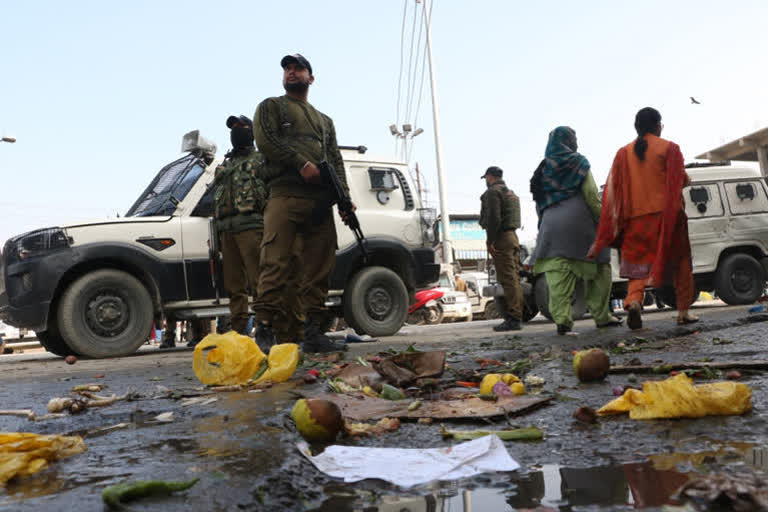New Delhi: The signs are clear, Kashmir’s winter is signing off. With the increasingly torrid rays of the sun, the snow in the higher reaches melts, clearing the passes and passages for militants to cross over the Line of Control (LoC) from the Pakistan side.
The indication that things are steadily heating up came on Sunday when the first major encounter of 2020 took place when five Special Forces (SF) commandos lost their lives in an encounter in Kashmir’s Keran Sector but not before gunning down all five intruding militants.
And this summer—the first one after abrogation of Article 370—the state establishment and the Pakistan-sponsored non-state actors are heading for a non-holds barred fight, with different reasons.
Chief among them is Pakistan’s stubborn attitude—astonishingly unchanging amid a global fight with the rampaging novel coronavirus COVID-19.
Lieutenant General DS Hooda (retired), one of the country’s most experienced military commanders on the Kashmir conflict, told ETV Bharat: “Support continues to come in from Pakistan. Nor is Pakistan under any pressure to stop this support. After all, can the Pakistani leadership be seen as abandoning the Kashmiri cause at this juncture?”
“Even as the COVID-19 pandemic rages across the world, Pakistan’s ceasefire violations have only increased considerably than the two earlier years for corresponding periods.”
“This summer is very important as it is the first one after abrogation of Article 370. But I believe we are in for a long haul,” said Gen Hooda who also commanded Indian army’s Northern Command during the ‘surgical strike’ in September 2016.
According to Indian Army spokesperson Colonel Aman Anand: “Ceasefire violations (CFV) by Pakistan surged to more than 1,140 from January to March 2020, much higher than 627 in 2018 and 685 in 2019 for the same period.”
CFVs are usually undertaken to aid intruding militants by giving covering fire.
That wouldn’t make it very different from earlier summers but certain factors will induce the government to give its all.
For one, the government has everything in place the way it would have wanted. Therefore, there won’t be any space for excuses.
After the decision to alter the status quo where past regimes usually catered to the whims and fancies of the local leadership and in a way enabled Kashmiris to develop stakes in the Indian system, the Narendra Modi government has done away with that.
Then came the August 5, 2019 decision to divide the state, take away the statehood and most importantly, abrogate Article 370, a constitutional provision that ensured special status for undivided Jammu and Kashmir.
At the tactical level, New Delhi has all it wants, therefore, the need to deliver its hardest hit on militants and their infrastructure.
On the other hand, militants will be looking at the relatively reduced presence of security forces in Kashmir.
While considerable numbers of security personnel were sent to the Northeast region during the widespread violence over the Citizenship Amendment Act, significant numbers are engaged in the fight against the virus epidemic.
And with the support growing from many Muslim nations including Iran, Turkey, Indonesia and Malaysia, the militancy movement will seek to extract the maximum in terms of widening the support case among the locals as well to make the issue more international.
Read: COVID-19: Strawberries for cows, milk in streets as farmers face body blow



